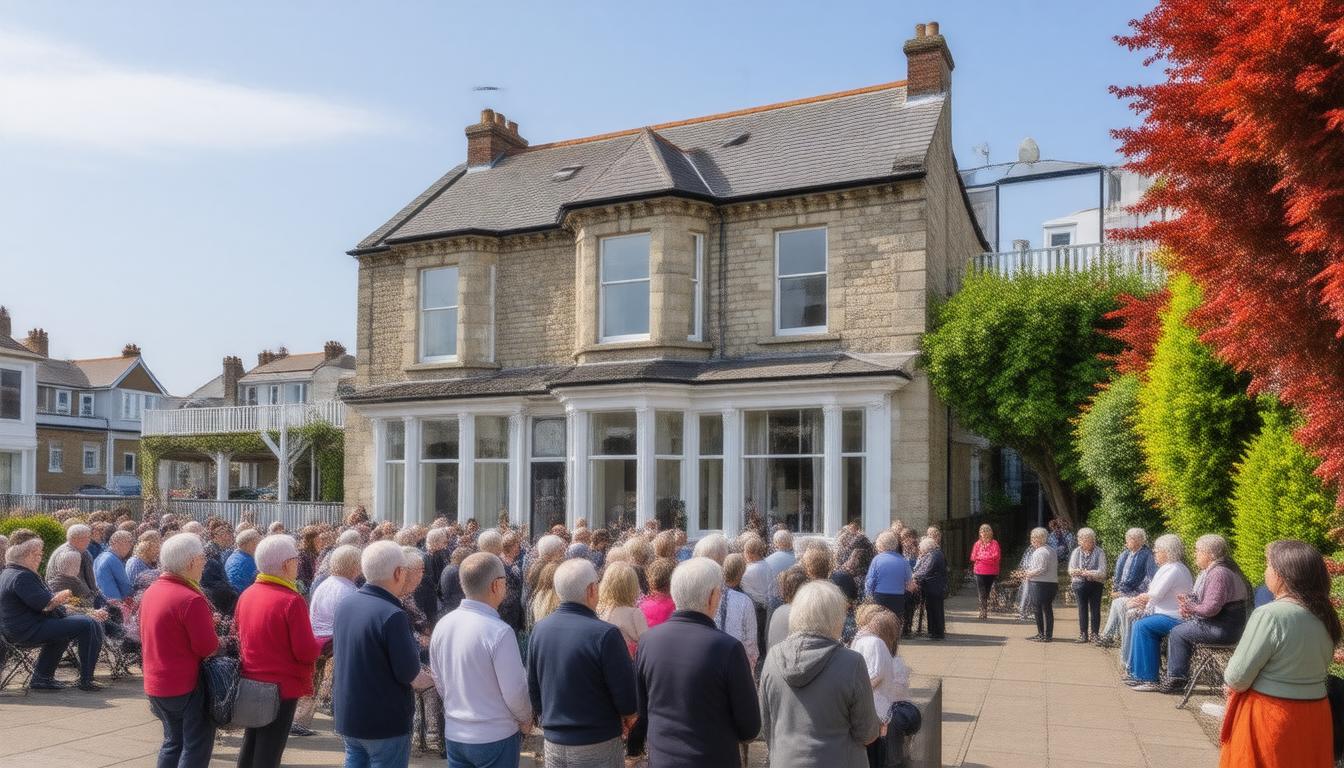In a controversial development that has stirred considerable community debate, a proposal to convert the Kent House Nursing Home in Broadstairs into a House of Multiple Occupation (HMO) is set to be discussed by local councillors next week. The application, submitted by Mr. Toot of N & I Holdings Limited, aims to transform the current care facility, which accommodates up to 25 residents including those suffering from dementia, into a 21-bed HMO. Proponents of the plan argue that only minimal changes are required for the transition, yet this initiative has elicited strong objections from residents and local organizations alike.
Key Takeaways
- The proposed conversion of Kent House nursing home into a House of Multiple Occupation has sparked significant community backlash.
- Residents express fears over losing crucial care facilities, increased traffic, and the potential presence of undesirable tenants.
- Despite substantial public opposition, local authorities lean towards approving the application based on minimal structural changes.
Background of the Proposal
In a significant development for local housing and healthcare, councillors in Broadstairs are set to discuss a proposal to transform the Kent House nursing home into a House of Multiple Occupation (HMO). The application, submitted by N & I Holdings Limited, aims to convert the existing care facility, which currently accommodates 25 residents—including those with dementia—into a 21-bed unit designed for multiple tenants. Mr. Toot of N & I Holdings contends that the alterations required for this conversion will be minimal, focusing primarily on the reconfiguration of internal layouts to establish adequate bedrooms and shared amenities, while preserving the existing structure of windows and doors. This approach seeks to alleviating concerns from neighboring properties about potential noise and privacy issues associated with increased tenancy (Kent Online, 2024).
The proposal has garnered 33 letters of objection from local residents reflecting apprehensions over the loss of vital care services, potential traffic congestion, and worries relating to the character of the community which is predominantly home to older individuals. The Broadstairs Society has expressed strong opposition, highlighting that the change could adversely affect the area’s residential character (Thanet Gazette, 2024). Moreover, the Thanet council’s licensing officer has confirmed adequate shared kitchen facilities to support an occupancy of 20 individuals, with the space capable of accommodating a maximum of 22 under current licensing conditions (Local Democracy Reporting Service, 2024).
Concerns also persist regarding potential new tenants and associated vehicular pollution. However, detractors have yet to provide substantial evidence indicating that the conversion would significantly exacerbate local traffic conditions. Cllr Mike Garner has raised critical points about the adequacy of parking and potential overcrowding implications. Notably, the nursing home had faced significant scrutiny prior to this proposal, having been placed under special measures by the Care Quality Commission due to its inadequate service ratings. The council meeting scheduled for next week will provide an opportunity for these issues to be deliberated as the community weighs the outcome of this contentious proposal (Kent Live, 2024).
This conversation comes as Kent continues to balance the pressing needs of its vulnerable populations with housing demands, raising larger questions about the future of care services and community standards in the region.
Community Concerns and Opposition
Aside from the immediate concerns surrounding the Kent House proposal, the broader implications for community cohesion and local services also warrant consideration. With Kent experiencing a growing population, the demand for various types of accommodation is intensifying, yet the transition from care facilities to HMOs raises questions about the support provided for vulnerable residents, particularly those suffering from mental health issues. Critics argue that repurposing care homes into multiple occupancy units could lead to a decline in local service provision, as the region has already faced challenges in accurately meeting the needs of both older adults and new residents alike (BBC News, 2024). Additionally, the potential increase in transient populations in HMOs could undermine the stability that families and long-term residents value in their neighborhoods, adding further weight to the objections raised against the conversion. With the council’s impending decision, the community remains on edge, anxiously anticipating the impact such changes could have on the character of their beloved Broadstairs.





